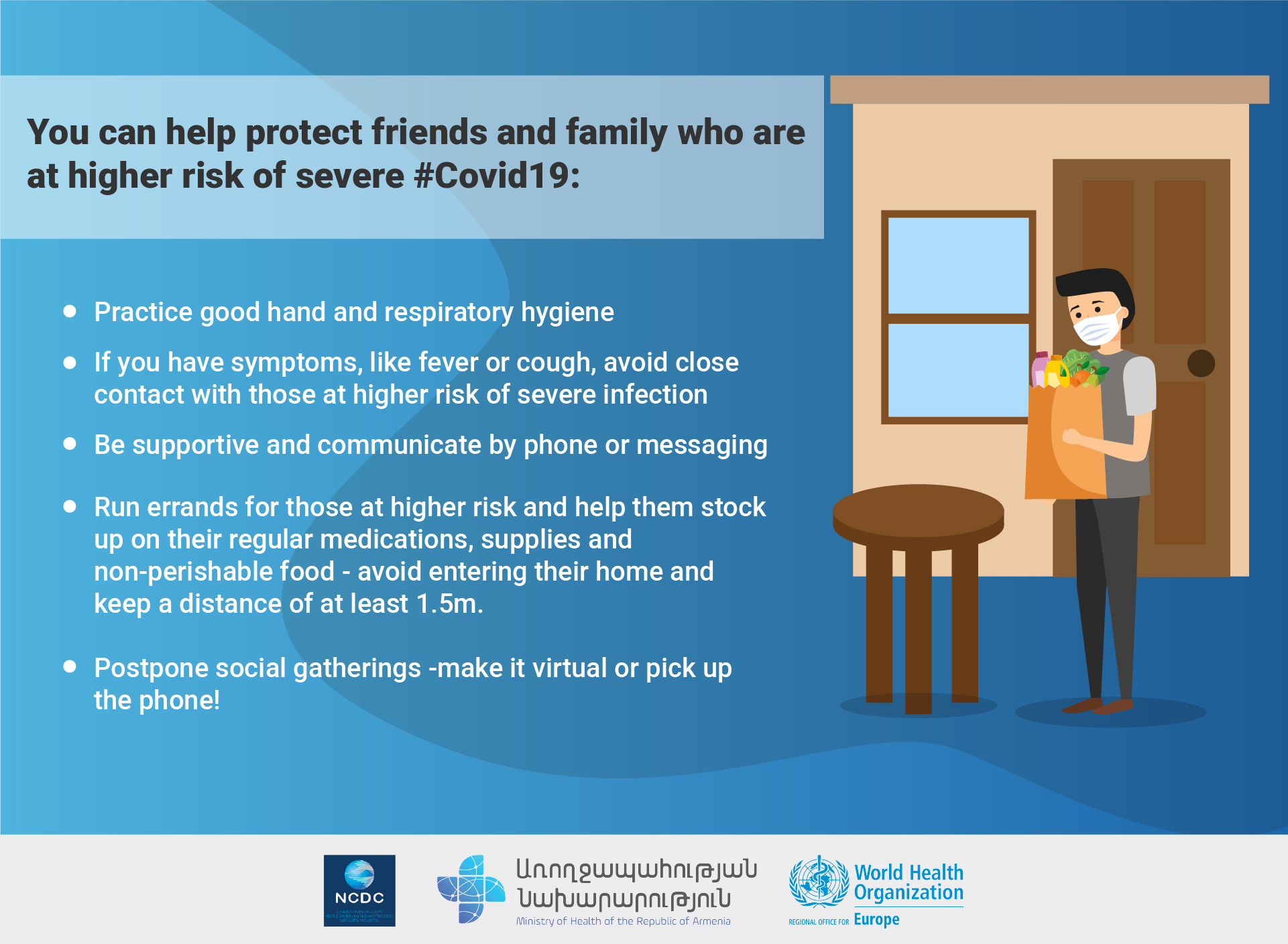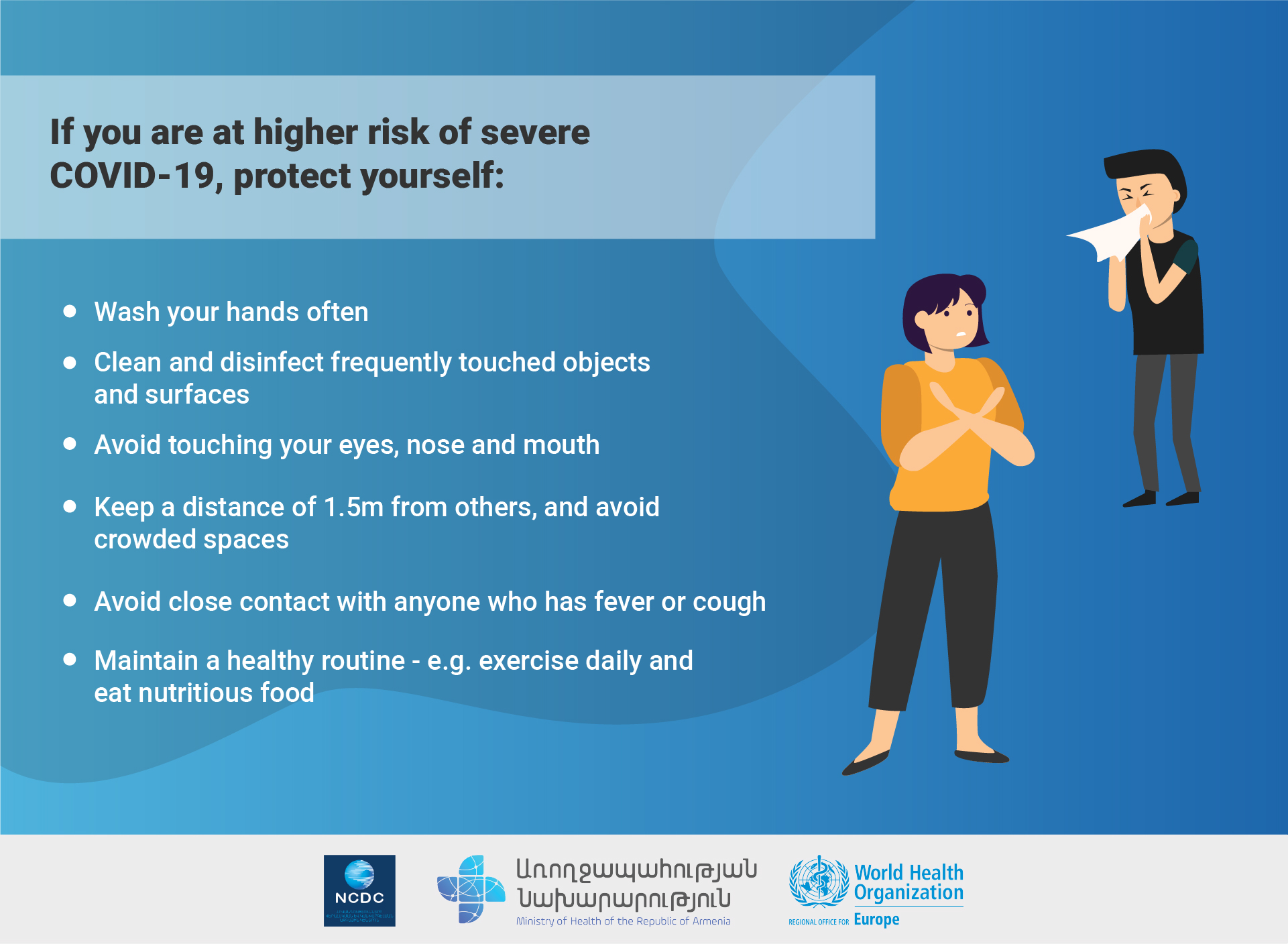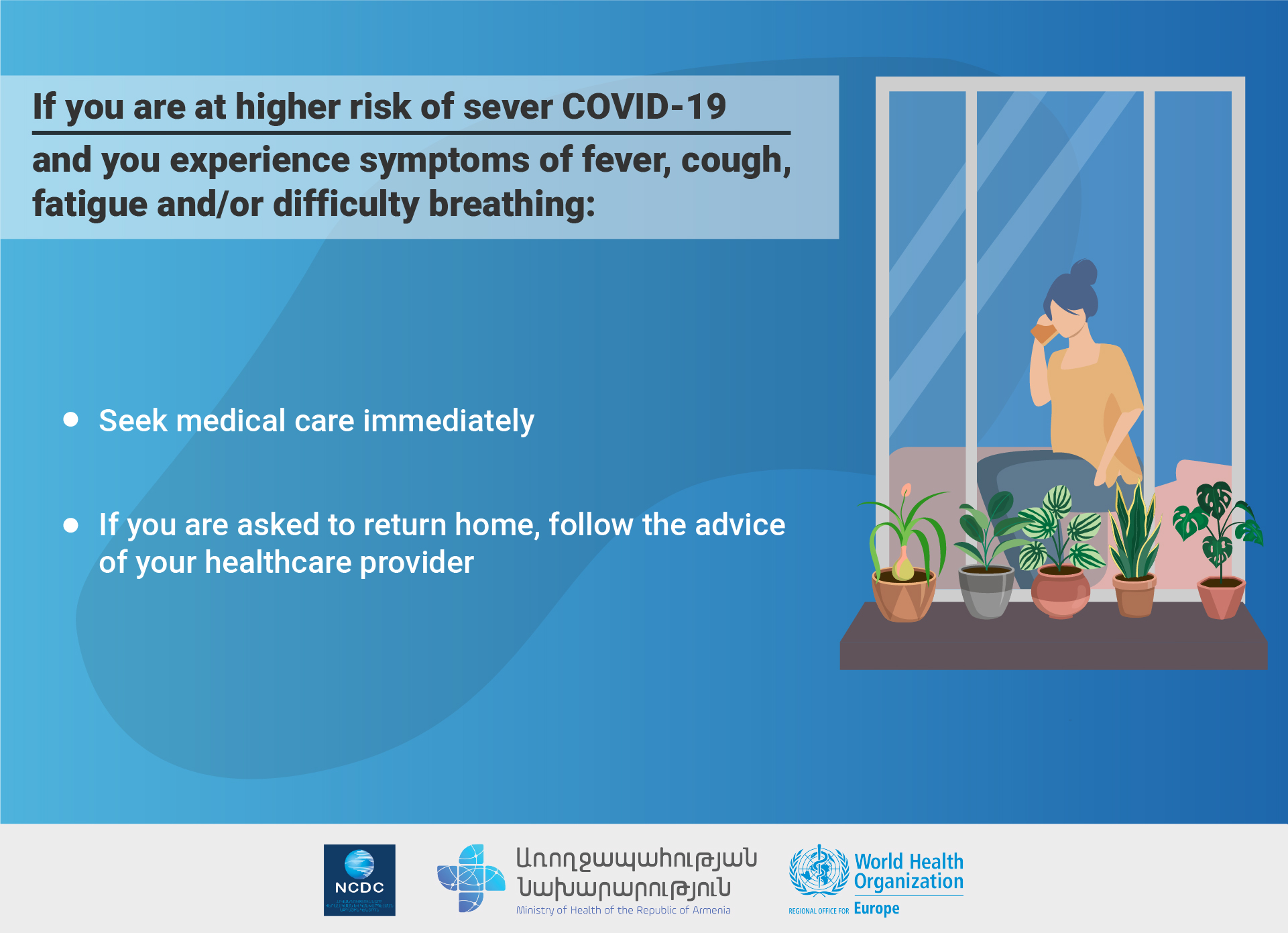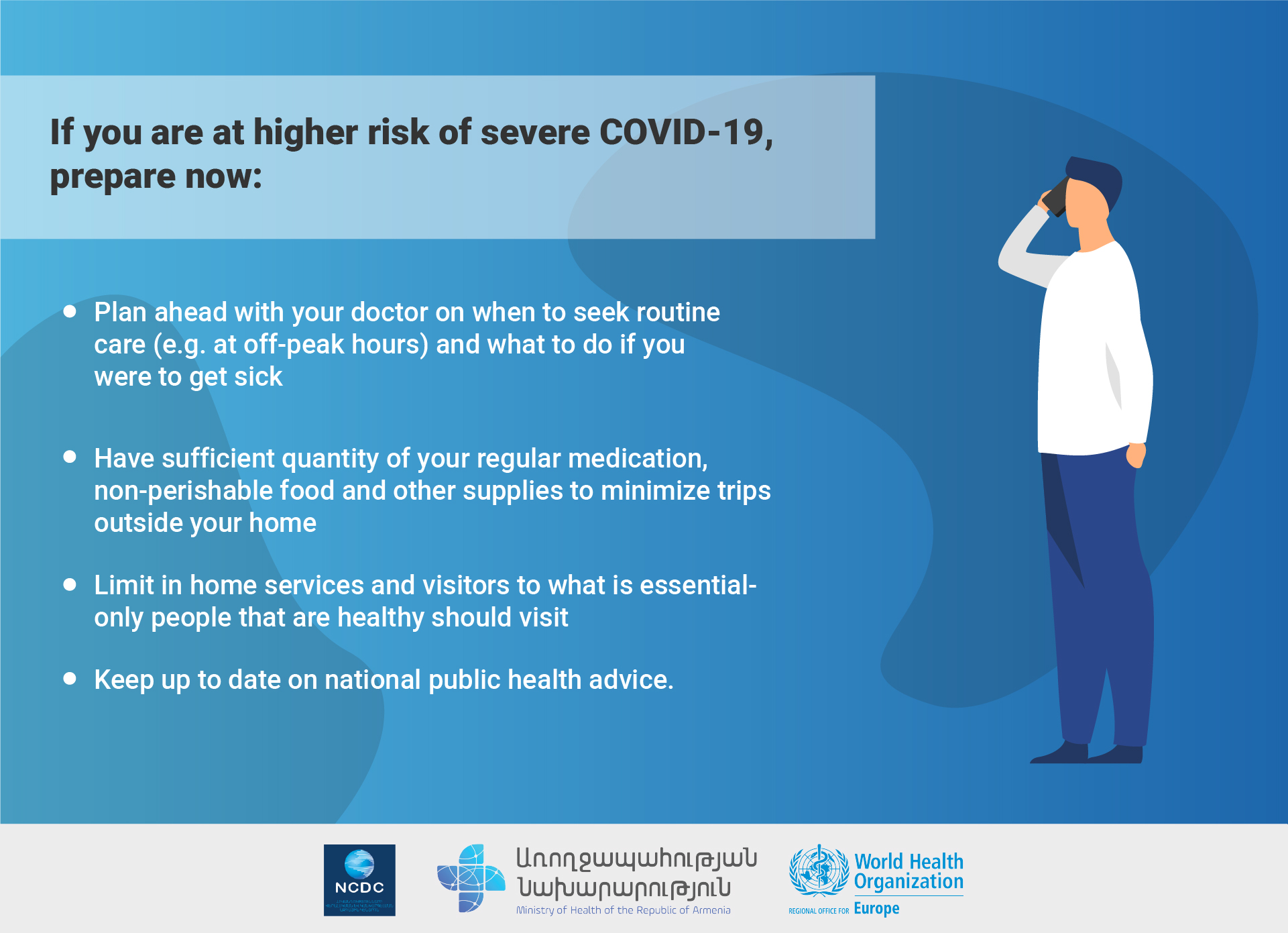People with an Increased Risk of getting the COVID-19
 The risk groups for coronavirus disease (COVID-19) are¹: (This group includes those groups of citizens who are advised to be vaccinated primarily because of the high risk of severe COVID-19 disease2).
The risk groups for coronavirus disease (COVID-19) are¹: (This group includes those groups of citizens who are advised to be vaccinated primarily because of the high risk of severe COVID-19 disease2).
1. Residents and employees of social protection institutions for the elderly, employees and beneficiaries of other social protection institutions
2. Healthcare professionals: doctors, intermediate medical workers, junior medical workers
3. Population aged 65 and older beginning with those aged 80 and over
Older adults are more likely to get severely ill from COVID-19. More than 80% of COVID-19 deaths occur in people over 65, and more than 95% of COVID-19 deaths occur in people older than 45³.
4. Persons with chronic diseases in the 16-64 age group
5. Lecturers, teachers
7. Military
8. Justice system workers, detainees, and convicts
9. Public transport employees
10. Civil servants ²
 People with disabilities are more likely than those without disabilities to have chronic health conditions, live in a congregate setting, and face more barriers to healthcare. Studies have shown that some people with certain disabilities are more likely to get COVID-19 and have worse outcomes³.
People with disabilities are more likely than those without disabilities to have chronic health conditions, live in a congregate setting, and face more barriers to healthcare. Studies have shown that some people with certain disabilities are more likely to get COVID-19 and have worse outcomes³.If you have a medical condition, speak with your healthcare provider about steps you can take to manage your health and risks³. Preventive measures for COVID-19 (including vaccination, wearing a mask, and social distancing) are important especially if you are older or have multiple or severe health conditions.
Health conditions, that may lead to severe developments
 The list below does not include all potential medical conditions that could make you more likely to get severely ill. Rare medical conditions may not be included below. However, a person with a condition that is not listed may still be in more danger from COVID-19 than persons of similar age who do not have the condition and should talk with their healthcare provider.
The list below does not include all potential medical conditions that could make you more likely to get severely ill. Rare medical conditions may not be included below. However, a person with a condition that is not listed may still be in more danger from COVID-19 than persons of similar age who do not have the condition and should talk with their healthcare provider. Chronic lung diseases
- These diseases may include:
• Asthma, if it’s moderate to severe
• Chronic obstructive pulmonary disease (COPD), including emphysema and chronic bronchitis
• Having damaged or scarred lung tissue such as interstitial lung disease (including idiopathic pulmonary fibrosis)
• Cystic fibrosis, with or without lung or other solid organ transplant
• Pulmonary hypertension (high blood pressure in the lungs)³.
Heart conditions
Chronic kidney disease
Liver disease
Having chronic liver diseases, such as chronic hepatitis, chronic liver failure, alcohol-related liver disease, nonalcoholic fatty liver disease, and especially cirrhosis, or scarring of the liver, can make you more likely to get severely ill from COVID-193.
Chronic nervous system disorders
Parkinson's disease, Multiple Sclerosis (MS), cerebral palsy
Immunocompromised state (weakened immune system)
Many conditions and treatments can cause a person to be immunocompromised or have a weakened immune system. Primary immunodeficiency is caused by genetic defects that can be inherited. Prolonged use of corticosteroids or other immune weakening medicines can lead to secondary or acquired immunodeficiency.
Cancer
Overweight and obesity
Overweight (defined as a body mass index (BMI) > 25 kg/m2 but < 30 kg/m2), obesity (BMI ≥30 kg/m2 but < 40 kg/m2), or severe obesity (BMI of ≥40 kg/m2), can make you more likely to get severely ill from COVID-19. The risk of severe COVID-19 illness increases sharply with elevated BMI.³
Pregnancy
Sickle cell disease or thalassemia
Having hemoglobin blood disorders like sickle cell disease (SCD) or thalassemia can make you more likely to get severely ill from COVID-19.
Smoking, current or former
Solid organ or blood stem cell transplant
Having had a solid organ or blood stem cell transplant, which includes bone marrow transplants, can make you more likely to get severely ill from COVID-19.
Substance use disorders
Having a substance use disorder (such as alcohol, opioid, or cocaine use disorder) can make you more likely to get severely ill from COVID-19.
 Diabetes (type 1 or type 2)
Diabetes (type 1 or type 2)
Down syndrome
HIV infection
Systemic autoimmune diseases
Dementia or other neurological conditions
Information on Children and Teens
References list
1. Risk Groups for COVID-19 vaccinations. Annex, 436 Decree of Health Minister, February 15, 2021 436
2 Rules for organizing work in public administration and local self-government bodies, Annex 2, Commandants decision N 63, May 3, 2020

